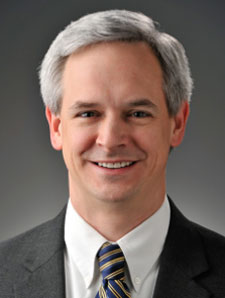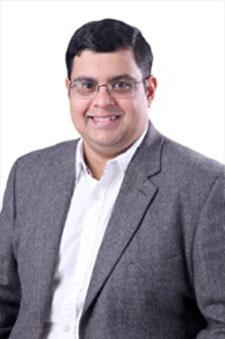Paulina Jaramillo, PhD
Professor, Engineering & Public Policy
Carnegie Mellon University

Professor, Engineering & Public Policy
Carnegie Mellon University
The potential emissions resulting from the deployment of energy systems that support economic development beyond providing basic residential energy access in the Global South could derail climate stabilization efforts. Decisions made today about these energy systems have long-term implications on future greenhouse gas emissions and climate change. Indeed, if countries in the Global South complete fossil-based power plants currently in the proposal, planning, or construction stage could lock-in 75 gigatonnes of CO2 by 2070 (for context, the cumulative CO2 emissions from fossil fuels and cement between 1751 and 2017 for all of South America totaled 40 gigatonnes (Ritchie 2019)). Alternatively, the premature retirement of such assets could result in sunk costs of US$280 billion, which would effectively increase the costs of meeting development goals in the Global South. It is therefore critical that we understand feasible energy development pathways and their financial and environmental implications. Models of energy systems currently lack the ability to represent the conditions of the Global South, particularly the conditions in the least-developed countries. (Dioha MO 2017), for example, suggests that none of the currently available energy system models include a complete representation of the technological options, demand projections, or governance constraints that capture the conditions in Sub-Saharan Africa. Data paucity is an ever-present challenge. Future academic work to understand the challenges and opportunities for decarbonization of energy systems in the Global South is urgently needed to support decision-making. Finally, equity considerations will likely continue to be at forefront of climate negotiations. The UN already recognizes the principle of common but differentiated responsibility and respective capabilities in such negotiations. While technology transfer and financing have historically been considered the primary mechanisms through which developed countries can support the low-carbon development of the least-developed countries in the Global South, these mechanisms may not be effective or sufficient in their current form. Further research is thus needed to identify appropriate mechanisms through which the international community can support the decoupling of energy use from greenhouse gas emission in least-developed countries in the Global South. In this talk, Professor Jaramillo will discuss work in her research group to fill these research gaps, and make a call for action to the academic community to engage in such research efforts.
Originally from Medellin – Colombia, Paulina Jaramillo is a naturalized citizen of the U.S., where she has lived more than half her life. She is currently a professor of engineering and public policy at Carnegie Mellon University (CMU). Jaramillo is also the co-director of the Green Design Institute at CMU, a fellow of the Scott Institute for Energy Innovation and Research at CMU, and a research affiliate of the Kigali Collaborative Research Center. She also holds a courtesy appointment in CMU Africa. Finally, Jaramillo is a lead author for the IPCC’s 6th Assessment Report as part of Working Group III.
Jaramillo’s past research focused on life cycle assessment of energy systems with an emphasis on climate change impacts and mitigation research. As a professor at CMU, she is currently involved in multi-disciplinary research projects to better understand the social, economic, and environmental implications of policy-driven changes in the operations of the energy system. Over the past five years, her research and education efforts have expanded to include issues related to energy access and development in the Global South. She has also worked to incorporate values and beliefs in energy planning in historically disenfranchised communities and to understand the implications of energy access in gender equity.
Jaramillo’s interest in energy for the Global South stems from her firm belief that what happens in developing countries as they try to provide energy that supports development will have profound implications in global environmental systems. There is an opportunity, however, to build sustainable and equitable modern energy systems that benefit from decades of technological development and experience elsewhere while accounting for local conditions and stakeholder interests. Through her research, Jaramillo aims to create the knowledge that will be required to meet global energy needs and climate mitigation efforts.

Director – Power Systems Engineering Center
National Renewable Energy Laboratory
Across the US, more states and electric utilities are seeing 100% clean energy goals of which renewable technologies will be a major player. Variable renewable energy like wind and solar photovoltaics (PV) differ from conventional generation in that they use power electronic converters instead of synchronous generators to connect to electric power grids. At small levels, the power grid can easily handle the integration of variable renewable energy. At much higher levels, there are a number of technical concerns that must be addressed to ensure reliable and economic operations. This presentation will discuss the challenges and solutions to operating power system with high levels of variable renewables and how power electronic interfaces can be used to solve some of these challenges.
Dr. Ben Kroposki is the Director of the Power Systems Engineering Center at the National Renewable Energy Laboratory (NREL) where he leads NREL’s strategic research in the design, planning and operations of electrical power systems. He has over 30 years of experience in the design, testing, and integration of renewable and distributed power systems and has more than 150 publications in these areas with over 7,600 citations. Dr. Kroposki received his BSEE and MSEE from Virginia Tech and Ph.D. from the Colorado School of Mines. Dr. Kroposki is the recipient of the IEEE Power & Energy Society (PES) Ramakumar Family Renewable Energy Excellence Award. This award has been established to recognize outstanding contributions in the field of developing, utilizing and integrating renewable energy resources in the national and global energy scenarios. As an IEEE Fellow, Dr. Kroposki was recognized for his leadership in renewable and distributed energy systems integration.

IEEE Fellow, NSERC Canada Research Chair position in Electric Energy Storage Systems for Transportation Electrification, Department of Electrical, Computer, and Software Engineering, University of Ontario Institute of Technology Oshawa (Canada)
his presentation will introduce both home and public charging interface designs from a power electronic intensive solution perspective. Several grid-connected as well as PV/grid interface topologies for EV charging will be presented, with detailed comparative points highlighted. The modeling, sizing, design, and implementation of a novel high-efficiency, single-stage PV/grid/EV charging infrastructure will be presented. The novel charging infrastructure is universal and smart in nature, whereby EV batteries of different chemistries as well as charging rates can be accommodated in a single power conversion stage. The designed charging infrastructure will support both Level 1 as well as Level 2 DC charging. This is a new concept for charging EVs. This is critical, due to the inevitable penetration of renewable energy sources, which are inherently DC in nature. According to SAE J1772 standards, DC charging of EVs can be performed at 200-450 V DC, 36.0 kW, and 80 A (DC Level 1), and up to 200 A, 90 kW (DC Level 2).
The talk will also review presently available level 3 DC fast charging systems, followed by a brief description and evaluation of DC fast-charging infrastructure. Different power converter topologies and viable configurations will be presented, compared, and evaluated. These topologies will be compared based on their power levels, efficiency, cost, and specifications. The talk will introduce for the first time the possibility of employing a 3-phase, 3-switch (TPTS) converter as a single-stage charger for DC fast charging. A new modulation technique for controlling a TPTS converter will also be introduced. Experimental verification and test results of the designed converter/charger prototype will be presented.
Sheldon S. Williamson received the Ph.D. (hons.) degree in electrical engineering from the Illinois Institute of Technology, Chicago, IL, USA, in 2006. He is currently a Professor with the Smart Transportation Electrification and Energy Research Group, Department of Electrical, Computer, and Software Engineering, University of Ontario Institute of Technology Oshawa, ON, Canada. He holds the NSERC Canada Research Chair position in Electric Energy Storage Systems for Transportation Electrification. His current research interests include advanced power electronics, electric energy storage systems, and motor drives for transportation electrification. Prof. Williamson is a Fellow of the IEEE.